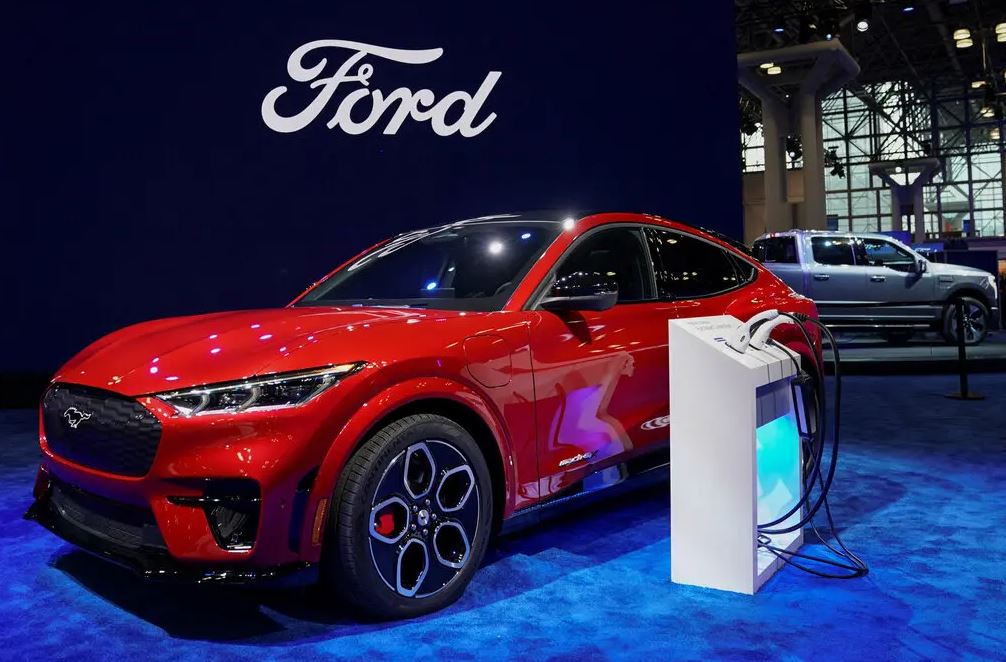Starting on Tuesday, criteria will be in place to decide which electric cars are eligible for tax credits, and American manufacturers like Tesla and General Motors will gain the most. Restrictions aimed at cutting China out of the supply chain would severely harm foreign automakers like Hyundai.
In the beginning, just 10 automobiles out of all the battery-powered cars sold in the US will be eligible for the $7,500 tax credit. While just 10 models were allowed to be sold before the new regulations went into force, several of the most popular ones were among them.
According to a list provided by the Treasury Department on Monday, the best-selling electric cars in the United States, Tesla’s Model 3 and Model Y, will qualify for the entire $7,500 credit, with one exception. Because its battery is manufactured in China, the least costly Model 3 will only be eligible for a 50% rebate.
The Chevrolet Bolt, produced by G.M. and one of the cheapest EVs available, will be eligible, as will the SUVs and pickup trucks that the firm wants to start selling this year.
Due to regulations demanding that a particular amount of the battery components and minerals like lithium originate from either domestic sources or trade allies, fewer Ford cars will qualify for the full $7,500 credit. Since the Mustang Mach-E’s Polish-made battery does not match domestic sourcing rules, it will only be eligible for half the credit, despite being the third best-selling electric car in the US last year as per Kelley Blue Book. The entire credit will still apply to the F-150 Lightning truck.
Stellantis’ Chrysler and Jeep brands do not currently offer fully electric vehicles, but some of its hybrid versions will be partially eligible for the credit. To be considered, the battery capacity of a hybrid vehicle must be at least 7 kilowatt hours.
The restrictions provide an edge to U.S. automakers over foreign rivals like Toyota, Volkswagen, and Nissan for the foreseeable future. The Treasury list, which is anticipated to increase as businesses change their supply networks, did not include any international automakers.
The regulations originate from the Inflation Reduction Act, which Democrats approved last year in an effort to combat climate change and promote American manufacturing. Regulations implementing the law were drafted by the Treasury Department.
Since China produces the majority of the world’s batteries and controls the majority of the raw material processing, this rule aims to lessen the car industry’s dependency on China. The bill also sets price caps and eliminates anyone who make above $150,000 annually or $300,000 as a pair. Similarly, the laws do not apply to automobiles manufactured in nations that are allies with the United States and Canada, such as South Korea and Germany.
South Korean automaker Hyundai plans to spend $10 billion in Georgia to construct vehicle and battery assembly factories, eventually allowing it to comply with the Inflation Reduction Act.
Mr. Muoz claimed that the Biden administration had rejected a request from the automaker and the South Korean government to enable Hyundai and Kia vehicles to qualify for credits while the facilities were being built.
The entire credit will still apply to other models of the Model 3 and the Model Y SUV. According to Kelley Blue Book, Tesla had more sales of electric cars in the United States in 2016 than all other automakers put together.
Some car industry leaders have complained that the standards are overly stringent, saying that they would hurt efforts to reduce global warming. Critics of the Biden administration, such as West Virginia Democrat Senator Joe Manchin III, have said that its regulations are too lax.
They say the rules are a good compromise between encouraging the use of electric cars and strengthening the local supply chain.
The government has determined that, in addition to the ten cars eligible for the full credit, seven more vehicles are eligible for the 50% credit. If, for example, the battery components of a vehicle fulfil the sourcing standards but the minerals used to build the batteries do not, the vehicle may qualify for 50% of the credit.
Companies may still claim credits for all leased vehicles despite not meeting sourcing and manufacturing standards, according to a loophole in the statute governing commercial vehicles. Mr. Muoz added that Hyundai has observed a rise in leases since automakers and their dealers can pass the savings on to customers. Customers may take advantage of tax savings and test-drive electric vehicles via the company’s subscription service.
But Mr. Muoz says it won’t make up for declining sales since consumers often prefer purchasing to leasing or renting vehicles.

